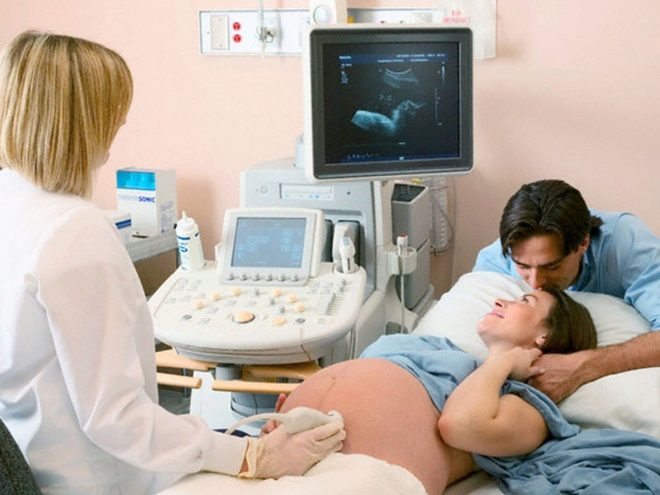What is different from screening ultrasound?
During pregnancy, a lot of research is being done, and this leads the future mommy to real embarrassment. This article will help to understand the difference between the ordinary execution of ultrasound screening.
What it is?
Ultrasound is a method that allows you to get a visual image of a future baby while he is still in the womb. Such an examination is appointed by an obstetrician-gynecologist. During pregnancy, at least 3 of these studies. In case of a pathological course, it may be necessary to conduct this examination more frequently.
Doctors call screening the whole complex of diagnostics, which allows to detect various abnormalities in fetal development or anomaly in the mother.
Screening includes not only an ultrasound scan. Some biochemical analyzes are also used to conduct it. In each period of pregnancy, they are their own.
What is similar?
Ultrasound is usually an important part of regular screening. With this method, you can get quite a lot of necessary information about how a particular pregnancy proceeds. This method also gives doctors a visual idea of how well the fetus is developing, and also makes it possible to see the main fetal structures.
For the ultrasound is used special equipment. Examination in pregnant women is usually carried out using transvaginal or transabdominal sensors. The resulting image is displayed on the monitors.
During pregnancy, doctors recommend that the future mommy should undergo several ultrasound examinations. There are strictly regulated medical documents that are used to establish the necessary dates for an ultrasound scan for pregnant women.
Future mothers quite often miss regular screenings. This can be considered a big mistake. Identification of hidden pathologies that may appear at different stages of pregnancy, allow you to prevent or promptly identify many genetic and chromosomal diseases. In order to establish them, doctors usually recommend that women additionally pass some biochemical tests.
What is the difference?
Screening is a mandatory procedure in the first and second trimester. AT third trimester it is carried out according to certain medical conditions. In some cases, ultrasound may be performed much more frequently than screening. The development of such a situation is possible with a complicated or pathological course of pregnancy. In the early stages of carrying a baby, an ultrasound scan is prescribed to exclude ectopic or "frozen" pregnancy.
Prenatal screening is a very important procedure, which is assigned to all women without exception. It is important to note that it is carried out not only in our country. Similar diagnostic systems for pregnancy are carried out almost worldwide. Only the list of necessary analyzes and studies that are appointed in each specific period of gestation is different.
Screening with ultrasound reveals abnormalities in the development of the fetus, as well as the developed anomalies of fetal structures.
In this case, it can not be attributed to ultrasound of the internal organs of the mother. Such an examination is not included in the screening.
For the first time, the future mommy will find out about all the screenings when she first registers with the antenatal clinic because of her pregnancy. The gynecologist, who will observe the pregnant woman in the future, will make comprehensive recommendations for her with the obligatory inclusion of screening dates. Every future mom should always remember that they should not be missed.
During the screening, doctors determine special indicators, which reflect the degree of fetal development. They differ significantly in the first and second trimester of pregnancy. To establish the diagnosis of just an ultrasound is not enough. It is complemented by biochemical analyzes.
The interpretation of the results involved gynecologists. If necessary, they can refer a pregnant woman for consultation with other specialists. Therapists deal with the treatment of concomitant diseases that were identified during the screening of the future mom.
If, after the screening, the doctors have determined that the expectant mother has a certain pathology, then she may need additional tests or ultrasound. In this case, such studies can no longer be considered a screening. They are carried out to monitor the course of pregnancy. Failure to pass them may be fraught deterioration of fetal development and difficulties during childbirth.
See the next video for more information on prenatal screening.


















